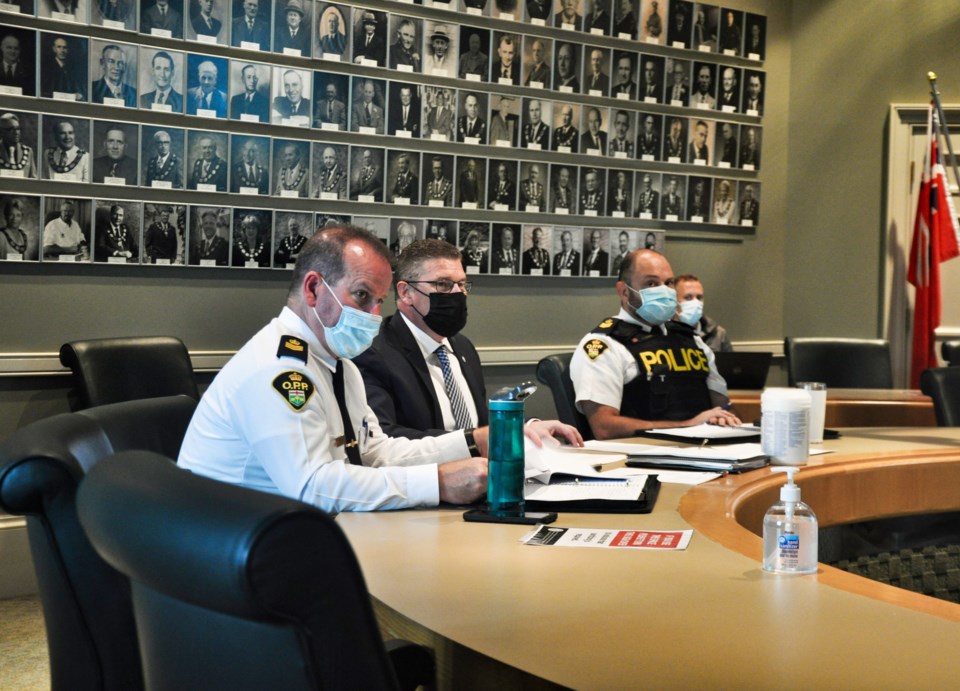In Canada, two thirds of human trafficking occurs in Ontario and recruitments happens in isolated, rural communities much like townships and towns in Wellington County, the county's police services board heard Wednesday.
Victims are then transported to larger urban centres through major highways, making the whole idea of human trafficking a 'Toronto issue' a myth, the board heard.
“Wellington’s close proximity to the 401 makes our residents appealing to traffickers,” OPP Const. Beth Hickey told the board during a presentation.
“Remote, rural locations are ideal places for traffickers to isolate victims because it’s easier for them, especially with remote learning currently happening as the internet has become the key source for grooming and luring.”
Many times, victims of human trafficking are found in major cities after they have been lured into it.
"People don't traffic people in the area of where they're from; they move them around," said Victim Services Wellington’s executive director Elizabeth Kent.
"With other more serious crimes, people in small towns tend to insulate themselves by saying 'it doesn't happen here because we all know each other and it's a small community'. But the fact of the matter is, crime can happen anywhere. It's not isolated to urban centres."
With the nature of human trafficking, traffickers can engage with victims online which means they don't necessarily have to be in the proximity of an urban centre.
Members of the Wellington County Police Services Board were eager to hear Wellington County OPP, Victim Services Wellington and Crime Stoppers Guelph-Wellington’s presentation on human trafficking and sexual assault.
Hickey, Victim Services Wellington’s executive director Elizabeth Kent, and Crime Stoppers Guelph-Wellington’s programme coordinator Sarah Bowers-Peter talked about their provincial grant, OPP’s involvement, the victim’s perspectives, and how to stop and prevent it from happening.
“Our focus is to give support for victims and survivors of sexual violence, harassment and human trafficking,” said Hickey.
“We also want to give training to police and community partners in trauma-informed approaches, as well as set out a proactive and strategic campaign to educate the public and raise awareness.”
The campaign received a one-year provincial grant under Ontario’s Community Safety and Policing (CSP) grant - Provincial Priorities Funding Stream.
The CSP grant is a grant program that provides for initiatives that respond to policing needs and priorities related to the safety and well-being and focuses on addressing local and provincial priorities.
“Grants are important to organizations like ours because we can never afford to do this campaign with just advertising, and we need this organization up and running,” said Kent.
Bowers-Peter notes that their goal is to go out to more schools within Wellington to further educate and raise awareness.
“I just had my presentations updated for the Upper Grand District School Board,” said Bowers-Peter.
“So, that includes my human trafficking presentation which references sexting and human trafficking but it’s age appropriate. But what’s important is going to schools, speaking to students and being able to relate to them the way they know how: talking about social media and its power; those followers are able to see who you’re friends with, where you live and some of their most intimate memories.”
Bowers-Peter notes that they are currently working with local municipalities within Wellington, so Kent, Hickey and herself can do presentations on human trafficking and sexual assault to council members, so “our leaders are well in-tuned and understand the magnitude of this campaign.”
